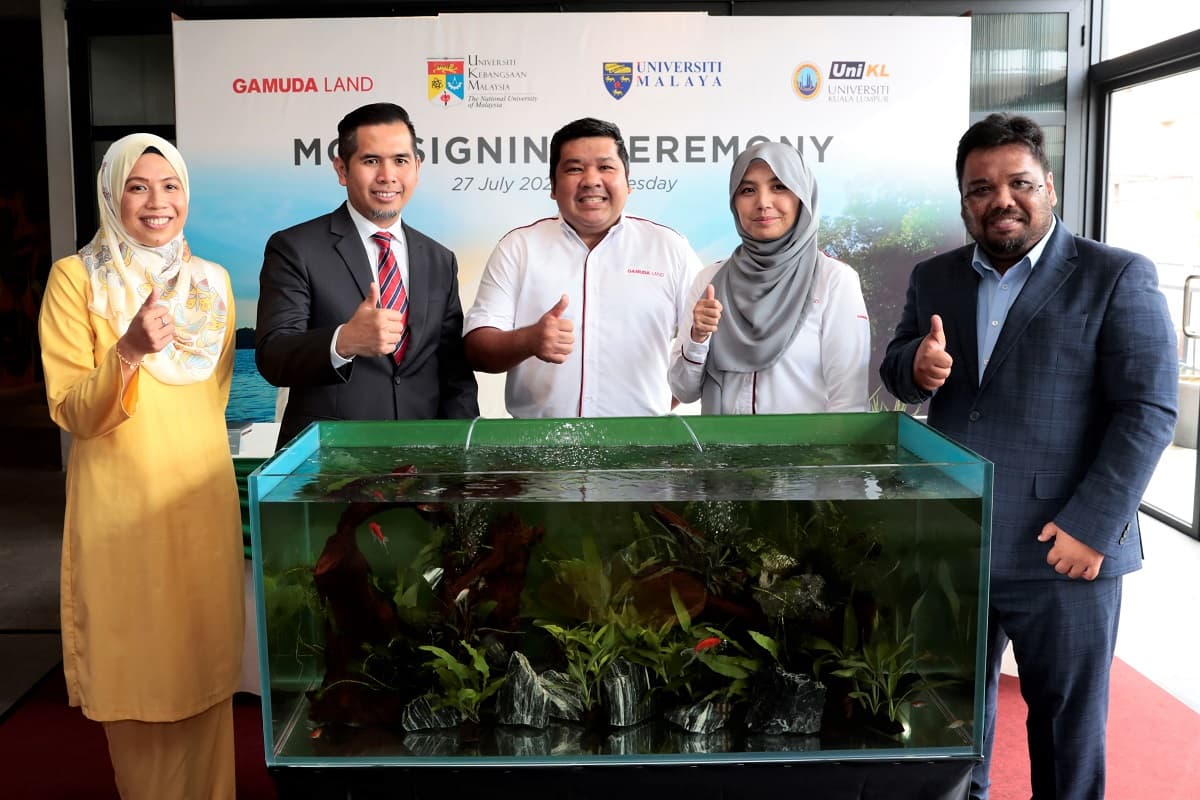
KUALA LUMPUR (July 28): Gamuda Land signed a memorandum of understanding (MOU) with Universiti Malaya (UM) and Universiti Kebangsaan Malaysia (UKM), and a memorandum of collaboration (MOC) with Universiti Kuala Lumpur (UniKL), at Gamuda Cove on Wednesday (July 27).
The MOU entered with UM and UKM aims to improve water quality at Paya Indah Discovery Wetlands (PIDW), while the MOC with UniKL is to improve the efficiency of waste management across three core Gamuda Land townships.
Gamuda Land executive director Khariza Abd Khalid said: “We want to commit to areas where we can make the biggest impact when it comes to climate action. As a town maker, mindful master planning and good designs are where we can make a difference for the community and work together with nature, and not against it. In order to do so, we cannot do it alone, and we are pleased to have like-minded institutions which share our green agenda to work hand in hand with us.”
A press statement on Wednesday explained that UM and UKM will lead investigations into current water quality at PIDW, and the results will be established as a basis for Gamuda Parks' biodiversity audit.
In addition, UM will also carry out content curation of the gallery at the Wetlands Arboretum at Gamuda Cove, which will act as a botanical garden that aims to promote awareness and conservation of plant species diversity.
UniKL, on the other hand, will experiment with waste management methodologies by collecting soil samples, food and garden waste from Gamuda Cove, Gamuda Gardens and the twentyfive.7 township for scientific research.
“The results of this study will provide a clear guideline for our maintenance team to better manage overall waste management in our townships. Additionally, improvements in food wastage compost management will improve the overall landscaping in Gamuda Land developments, as we use the compost material as bio-fertilisers — as soil enhancer for the growth of plants and trees that adorn our townships,” said Khariza.
The press statement also noted that these initiatives are in line with the Gamuda Green Plan, a framework that consists of goals driven in environmental, social and governance dimensions. The goal is to reduce direct and indirect corporate greenhouse gas emissions intensity by 30% in 2025, and by 45% in 2030.
